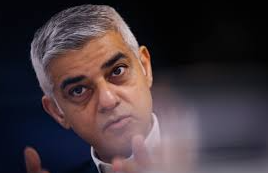
Latest post
Popular Posts

The first day’s journey was through the pink fields (1287)
- Mike_Smith
- November 21, 2016

Bhutanese Food: 25 Best Dishes To Eat When You’re In Bhutan! (1199)
- Mike_Smith
- April 20, 2017

Malaysia bans ‘Despacito’ on state radio, TV due to lyrics (1190)
- Mike_Smith
- May 20, 2017

Red Sox Lineup: Eduardo Rodriguez Activated From DL (263)
- Mike_Smith
- July 18, 2016

Facebook video being the top priority of marketers in 2017 (260)
- Mike_Smith
- July 18, 2016
Category: Politics
- Home
- Politics
Popular Post

The first day’s journey was through the pink fields (1287)
- Mike_Smith
- November 21, 2016

Bhutanese Food: 25 Best Dishes To Eat When You’re In Bhutan! (1199)
- Mike_Smith
- April 20, 2017

Malaysia bans ‘Despacito’ on state radio, TV due to lyrics (1190)
- Mike_Smith
- May 20, 2017

Red Sox Lineup: Eduardo Rodriguez Activated From DL (263)
- Mike_Smith
- July 18, 2016

Facebook video being the top priority of marketers in 2017 (260)
- Mike_Smith
- July 18, 2016
Newsletter
Weather
mist
18℃
29º - 18º
humidity: 35%
wind: 3 km/h
-
27℃Thu
-
27℃Fri
-
26℃Sat
-
27℃Sun
-
27℃Mon
-
27℃Tue















Hello world!
Pic of the week: Sunset at margate beach
The first day’s journey was through the pink fields
The first day’s journey was through the pink fields
The first day’s journey was through the pink fields